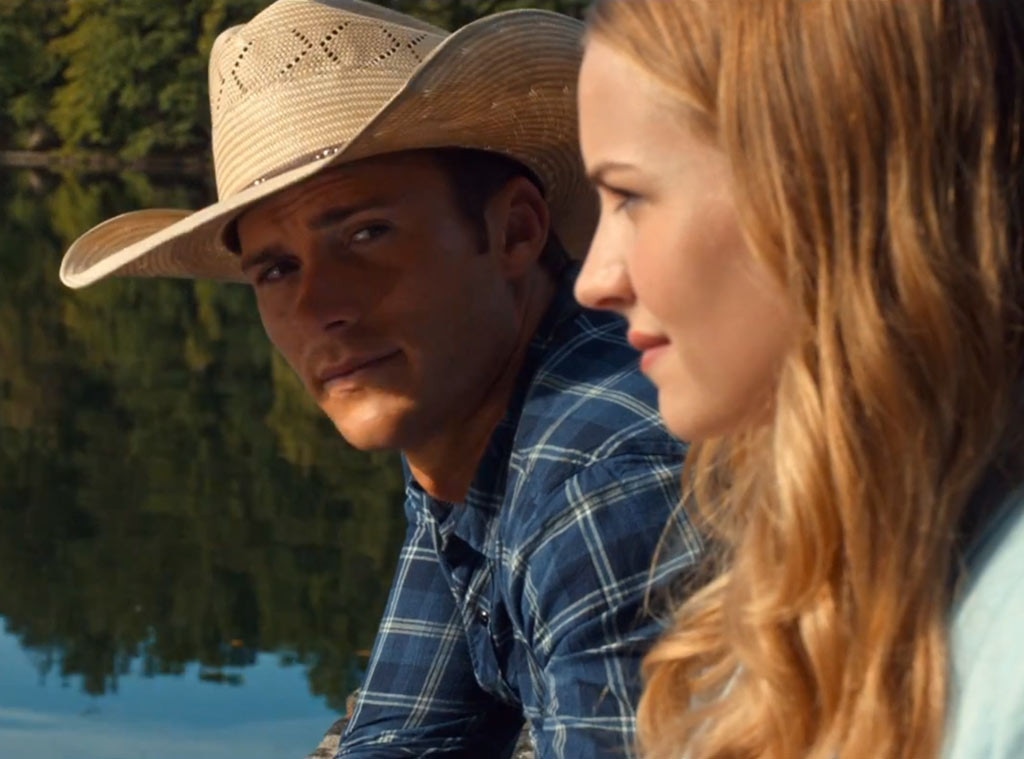 20th Century Fox
20th Century FoxIt's been a good few years for female-focused movies. (Very) slowly, but surely studios are beginning to catch on to the fact that women are not only a strong audience in their own right, but that they're looking for more than just a shirtless guy on the screen.
You can thank Paul Feig for some of the movement—the director brought us Bridesmaids (and he's also working on the all-female Ghostbusters), which felt like one of the first movies to actually portray a romantic comedy in a real way. Silver Linings Playbook shouldn't be overlooked, either. Some people may balk at the label of rom-com for an Oscar-winning flick, but hey! It had romance, it had comedy...you do the math. And we're already counting down the weeks until Amy Schumer's Trainwreck comes roaring into theaters this summer to (hopefully) shatter a few damsel-in-distress stereotypes.
In short, it's become more accepted (and even expected) to demand some quality out of a romance movie.
And then there's Nicholas Sparks.
He, king of cheesy dialogue and laughably outdated relationship dynamics, has been holding court with his brand of very, very not good movies for far too long, in this writer's opinion. From A Walk to Remember to The Lucky One, Sparks-induced shudders feel like they've dominated the last decade. This week's release, The Longest Ride, isn't much different.
The flick is about a once-champion bull rider (played by Scott Eastwood) struggling to reclaim the top spot in the sport who falls in love with an ambitious and city-minded college student (Britt Robertson). This is probably where you'd expect a little tidbit about how Eastwood fares in his first starring role, but unless an actor can be evaluated solely on his ability to smirk, take off his shirt and make frightened faces next to a CGI bull we've got nothing. No offense to Scott, of course—The Longest Ride didn't give him the chance to do much else.
Without giving too much of the plot away (but let's be honest: If you've seen one Nicholas Sparks movie in the past five years you can probably predict nearly every "twist"), we'll just say that it embodies pretty much all of our complaints about the genre. For starters, there are the clichés. Oh, the clichés! Why is there always a rainstorm in the middle of an outdoor date? Why does the girl always manage to fall in a puddle/get splashed by mud/spill at the exact moment that there's a shower nearby and a spare moment for first-time sex? Why are they always playing tag on the beach? These are answers that only Nicholas Sparks can answer.
Also, in true Sparksian fashion, the female characters are less than role models for fellow women. Even if it's not a total boy-rescues-girl trope, you can bet your a-- that there's going to be a whole lot of compromise required from the female lead. But who could blame these ladies? The men are so smoldering and they care so much about their bull riding/house building/pickup truck owning that of course it's only natural that the girlfriend should give up her dream job/dream city/dream apartment in order to ride horses around the countryside and make the relationship work.
As romantic movies start to shift away from these ideas, Sparks films seem to be holding onto the stereotypes with an iron grip. In the interest of fairness, it's worth mentioning that there's clearly an audience for these kinds of stories. The Lucky One and Safe Haven, for example, each pulled in a respectable $60-70 million at the box office. And if the reception to The Longest Ride during the screening was any indication, people seem to enjoy watching two overtly attractive actors rattle off cheesy lines and have sex to even cheesier music. We're not here to shame those moviegoers for their taste (well, maybe we'd like to shame a little), but rather to say they deserve better. We all deserve better.
Sparks and his cornball ilk, instead of providing us with a feel-good movie that also happens to have things like witty dialogue or realistic conflict, seem to train audiences to settle for the lowest common denominator plot. We start to simply want the couple to end up together in the end—and we stop caring as much about how they get there.
Which, sadly, is the reason we should be watching movies in the first place.